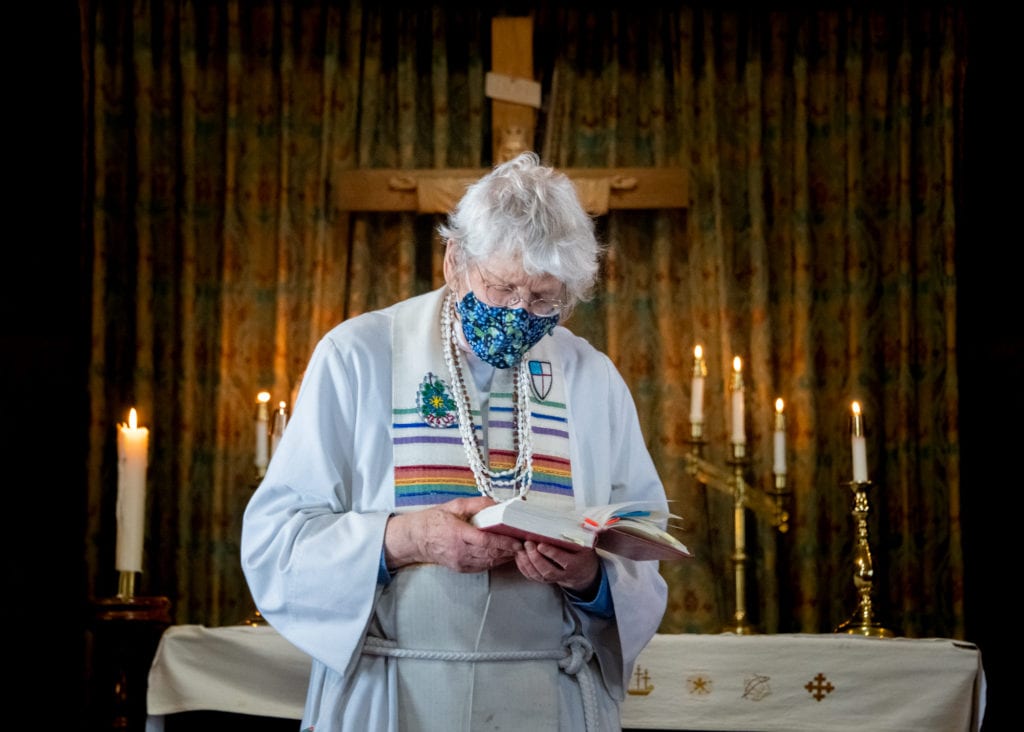
It was March 24, 1989. I was living here in Cordova. “There’s been an oil spill,” someone said. “I don’t have time for that,” I responded. Little did I realize how much the oil spill would impact and overwhelm my life — and everyone’s life. Soon we were all doing two jobs: our own and another one doing anything we could to clean up or help out. It was a sunny spring and summer — just beautiful — and only 50 miles away everything was covered in black goo. Sea otters, sea birds, fish, eagles, whales — all were dying. And so much of our fisheries, too. It took twenty years for the Prince William Sound salmon fisheries to return. And over 30 years later, our spring herring fishery has still not come back. The Sound has slowly recovered — but there is still oil on the beaches — leaching its poison into the waters. Far worse than these environmental effects — were the social impacts: depression, drinking, drugs, broken families, loss of income and a way of life… and the health of spill workers who now suffer mysterious diseases — the effects of trying to clean up such a hazardous substance — oil. It was such a sign of the times, a drunken captain running a tanker on a rock on Good Friday.
So it’s 2021. How can we help with the healing of Prince William Sound — and prevent oil from spilling on ours and so many other beaches all over the world? One of the main lessons from the Exxon Valdez oil spill was that we are all part of the problem. We all use oil. Residents of the United States rarely realize that with “their SUVs and minivans, larger houses, and frequent travel, they contribute five hundred times more greenhouse gas per person than does the average Nepalese.” They do not see that the oil sustaining their lifestyle comes from places like wilderness Alaska where in the process of drilling and transporting oil — air and water are polluted, major wildlife populations endangered, and indigenous cultures are threatened. The Gwich’in people in northeast Alaska and northwest Canada have been working for many years to protect their way of life and the caribou calving grounds on the coastal plain of the Arctic Wildlife Refuge.
Should we be drilling for more oil when as a nation, we haven’t really tried energy conservation? We need to focus on recycling and reusing the oil products that we already have — such as the plastics which are overwhelming our landfills and the ocean.
The hour has come. It is time for us to use our gifts and talents. All of us are needed. We can be part of the solution, one choice at a time. Walking or driving; lights off or on when we leave the room; a neighborhood ball game or watching TV; a contribution to the Salvation Army, the Red Cross, Episcopal Relief and Development or extra “stuff” for ourselves. It takes oil to run the hot water heater; to heat factories; to make the products we see in stores; to transport them to stores. Get your family together and investigate what you can do. Live more simply. Save some oil for your grandchildren and great grandchildren; save some money; save cultures in other parts of the world. Maybe even stop a war that might have something to do with oil… Invest in renewable energy. Act to prevent climate change. Vote. Thousands of Gwitch’in will thank you. The generations to come will thank you. Cordovans are real leaders! Together we can help the world, one step at a time.




